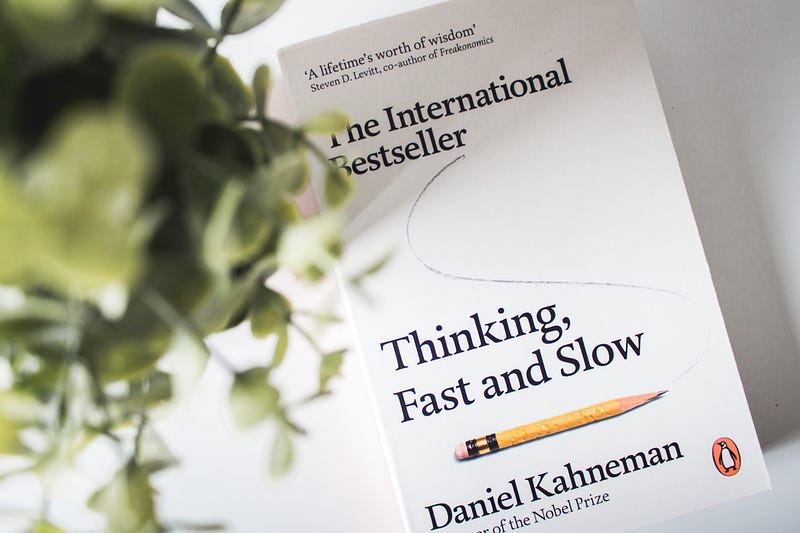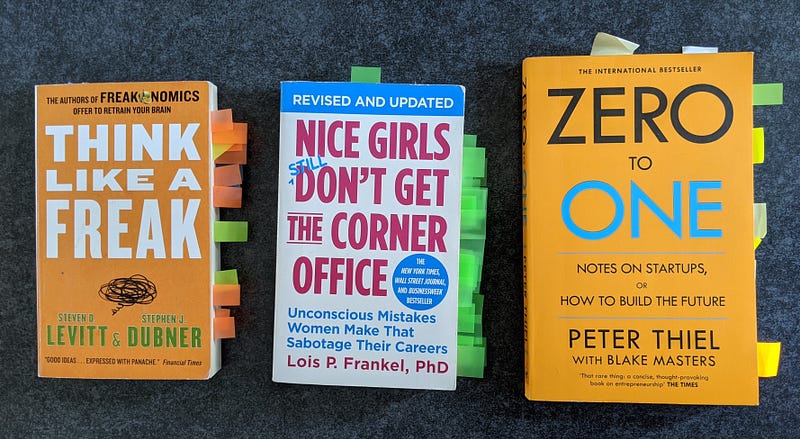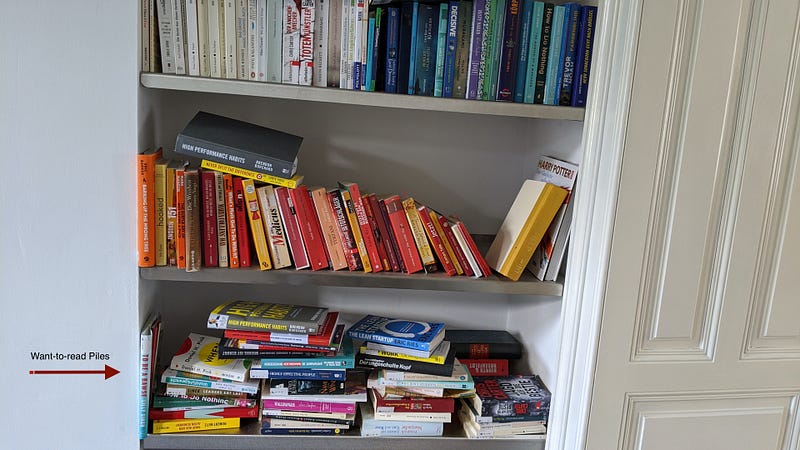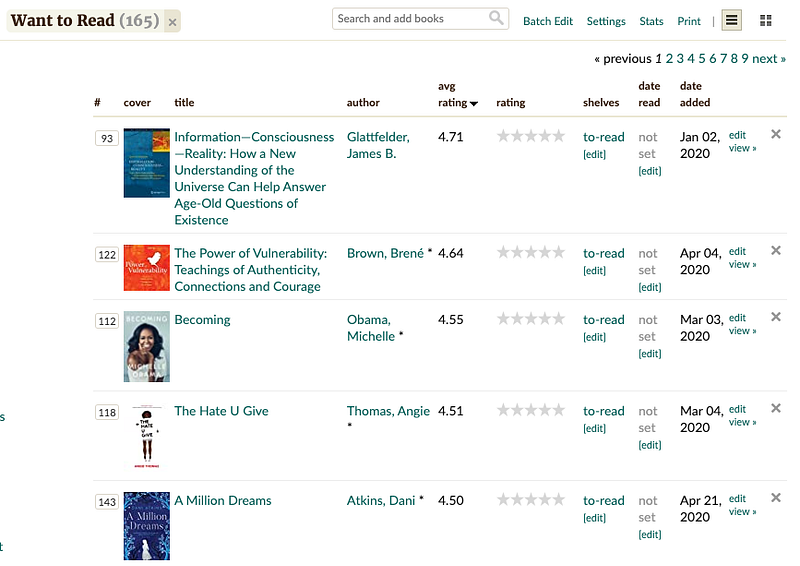#1: Read the books that make you want to read more.

I started to get serious about reading in early 2018. I committed to wake up every day at 5:30 AM and read until 7 AM. Sometimes I’d read after work, and by replacing my smartphone with an alarm clock, I’d always make time to read before going to bed.
One of my main motivations for reading more was a quote by Charlie Munger, self-made billionaire and Warren Buffett’s longtime business partner, who said:
“In my whole life, I have known no wise people who didn’t read all the time — none. Zero.”
Since March 2018, I’ve read 174 books. Here are some of the lessons I learned:
#1. Read the Books that Make You Want to Read More
Reading shouldn’t feel hard. If you don’t like the book you hold in your hands, skip it. Better to waste 11.95$ than 4 hours of your lifetime.
Books aren’t created equal — millions aren’t worth your time.
Only because your mentor liked a book, it doesn’t mean you must enjoy it. Maybe you don’t like the topic from a book on the bestseller list. Maybe you find a book too fluffy. Or maybe, the book is a classic, but you dislike the writing style.
I abandoned George Orwell’s 1984 a few pages in, and most people will blame me for not finishing this classic. But to be honest, I just couldn’t stand the negative utopia.
Lifetime is too precious to endure books you don’t like. Read the genres you cherish, the content you enjoy, from the authors you admire.
How to apply this advice
Every time you start a book, ask yourself a few questions. Do you like the tone of voice? Do you understand the content, or do you get sleepy every time you hole the book in your hands? How do you feel when you close the book: Do you want to continue reading, or are you happy you put the book aside? And overall, do you get what the author is trying to say?
Never force yourself through a book you don’t enjoy reading.
The best person to judge whether you should read a book is neither Goodreads nor your smart friend — it’s you.
#2. Communicate With Your Books
It was during my work in India when I first saw a person scribble into a new book. When I asked him why he’d destroy the book, he answered:
“Books are there for you. What’s the point of reading, if you can’t highlight your favorite sentences, ask questions?”
Since then, I never left a book unmarked. Using text markers, stickers, and pens make reading more fun, more memorable. In #7, you’ll learn how to systemize what you’ve read.
Here’s how my advice-dense books look like:

How to apply this advice
Cross out what you don’t like. Put stickers on pages where you experienced “aha” moments. Highlight what you want to remember. Jot down a question if lines are unclear. Scribble notes on the pages, to reuse what you’ve read.
#3. Replace Your Phone with Your Book
Did you know the average person spends over four hours a day on their device? If you spent half the time reading, with a reading speed of 250 words per minute and an average book length of 90,000 words, you’d finish more than two books a week.
The less time you spend on your phone, the more you’ll read.
Changing my phone habits was probably the hardest part but also the most effective one. I didn’t need to skip any activities to read 52 books a year. Decreasing my screen time enabled me to read (and write).
I tried different digital detox apps like Forest, Phocus, Freedom, and Moment but eventually, I deleted all of them. Ironically, the books Deep Work and Digital Minimalism helped me most to reclaim my time.
How to apply this advice
Disable all notifications. Use airplane mode whenever possible. When you start reading, put your phone into a different room. Replace your smartphone’s alarm function with a classic alarm clock. The only thing you can do in bed, besides sleeping, should be reading. Carry books with you while commuting. Instead of grabbing your phone, grab your book.
For a more radical guide, read Ryan Holiday’s advice for spending less time on your phone.
#4. Be Clear About Why You Read
Do you want to find facts, seek entertainment, or expand your understanding? Different books require different mindsets.
Thanks to How to Read a Book, the classic guide to intelligent reading, I learned not to read non-fiction chronologically. While I still read most books cover to cover, knowing I can skip irrelevant passages makes reading more relevant.
Your life is too short for passages that don’t serve your needs.
How to apply this advice
Ask yourself what you’re looking for before you open a book. Evaluate the first impression against your reading intention. Check whether the author has the credentials to give you advice. Many writers produce theoretical self-help fluff and have never done what they’re preaching.
If the book in your hands doesn’t fulfill what you’re looking for, put it aside. If you’re looking for specific information, identify relevant chapters, and only read those.
#5. Read Different Books Simultaneously
You don’t feel like reading before you go to sleep? Chances are high it’s the wrong book on your bed table.
I love reading non-fiction with technical investing advice, but this doesn’t mean I want to be sitting in bed at night with my mind buzzing with all the new things I learn. Instead, I quiet my mind with lighter fiction. Between my reading start and finish of Harari’s content-dense Sapiens, I read four other books.
You don’t want to eat the same dish for breakfast, lunch, and breakfast. Why would you read the same book at different times of the day?
“The most useful insights are often found at the intersection of ideas.“
— James Clear
How to apply this advice
Be okay with reading a few books at the same time. You can start a new book before you finished the one you’re reading. Start with one content-dense book for learning mode and a lighter fiction for nighttime lecture or weekend mornings.
If you’re interested in a book, but you’re not in the right frame of mind to read it just yet, put it on your reading list.
#6. Keep a “Want-To-Read” List
Reading is like every other part of life: Unless you choose what you want to read, others, like the airport’s bookshelves, will choose for you.
Moreover, the best motivator to continue reading your book is a long list of books you want to read after finishing.
The “want-to-read” piles on my bookshelf motivate me to read. One pile is for self-help advice, one for non-fiction, one for education and one for fiction.

How to apply this advice
Have a “reading list” in place and feed the list regularly. If you already have a list tracking in place, us it. If not, try Google Keep, Wunderlist, Amazon Wishlist, Bullet Journal, ToDoist, or Goodreads and settle on your favorite book tracker.
The filter function is a clear upside for Goodreads. In your “Want to Reads,” you can search for “date added” and “avg rating.” For ideas for your reading list, you can also use Goodreads to browse your friend’s lists.

#7. Apply Your Knowledge
Before building my first business, I had read dozens of books for each stage in the business lifecycle. But when it came to really starting, the biggest impact was just doing it.
At some point, “reading” distracts you from doing. You’ll get farther bumping along on your own without any books than you ever will reading and not doing anything.
Entrepreneur Gary Vaynerchuk wrote why reading wouldn’t help you become a better entrepreneur, saying:
“But how many books from these ‘experts’ do you need to read before you can actually do something? You can only read so much and at some point, you just have to do. Stop being a student, and start being an entrepreneur.”
Be careful about whether you’re procrastinating with reading and whether it holds you back from taking action.
How to apply this advice
When you finish the book, ask yourself what to do with what you’ve just read. Go back to the pages you highlighted or put stickers on. Put what you’ve learned into action items.
For example, when you read High-Performance Habits and learn about Affirmations, commit to recording your affirmation.
Unless you follow the advice from books and do something, even the smartest advice is a waste of your time.
The Bottom Line
In any case, don’t set your goal of reading a specific number of books per year and keep Mortimer J. Adler’s words in mind:
“In the case of good books, the point is not to see how many of them you can get through, but rather how many can get through to you.”
And whenever you find yourself wondering whether spending money on books is worth it, remind yourself of Benjamin Franklin who said an investment in knowledge always pays the best interest.
Do you want to stay in touch? Join my E-Mail List.